Filter by

Educational Theory in the 21st Century
This open access book reviews the effects of the twenty-first century scientific-technological and social developments on the educational theory. The first part handles the subject, focusing on technology and educational philosophy. In the second part, the implications of new human and social conceptions towards the education paradigms are examined. In the chapters of the last part of the book,…
- Edition
- 1
- ISBN/ISSN
- 978-981-16-9640-4
- Collation
- -
- Series Title
- Maarif Global Education Series
- Call Number
- XIV, 267

Sustainable Development Disciplines for Humanity
This Open Access book provides eight problem solving lectures for sustainable development for people, peace, and partnerships. Those are three of the five keywords for the Sustainable Development Goals (SDGs): people, the planet, prosperity, peace, and partnerships or “the 5Ps”. Each of these lectures is classified into one of the keywords for SDGs and based on the history of social thou…
- Edition
- 1
- ISBN/ISSN
- -
- Collation
- -
- Series Title
- Sustainable Development Goals Series
- Call Number
- XIX, 187

Evidence and Expertise in Nordic Education Policy
This open access book explores how policy makers draw on national, regional and international expertise in issuing school reform within five Nordic countries. In an era of international comparison, policy makers are expected to review best practices, learn from experiences from elsewhere, and apply international standards propelled by international organizations. Do they do so? What counts, fo…
- Edition
- -
- ISBN/ISSN
- 978-3-030-91959-7
- Collation
- -
- Series Title
- -
- Call Number
- -
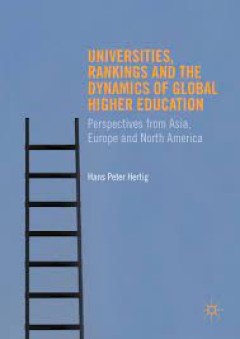
Universities, Rankings and the Dynamics of Global Higher Education Perspecti…
Global university rankings are now more than a decade old and this book uses the data they have produced to examine how the international landscape of universities has changed over the years. It offers new insights into the power and limits of league tables, a key element of globalized higher education that can be deplored but hardly ignored. Case studies from Asia, Europe and North America are…
- Edition
- -
- ISBN/ISSN
- 978-1-137-46999-1
- Collation
- -
- Series Title
- -
- Call Number
- -
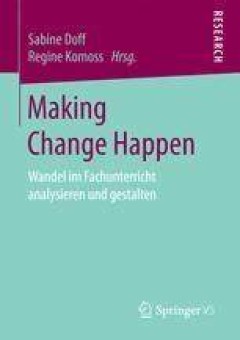
Making Change Happen
Im Mittelpunkt dieses Bandes steht die Frage, wie Fachunterricht sich verändern kann und muss, um aktuellen Herausforderungen für das Bildungswesen, zu denen unter anderen die zunehmende Diversität individueller Lernausgangslangen sowie Inklusion zählen, gerecht zu werden. Am Beispiel der Fächer Englisch, Französisch, Spanisch, Mathematik, Kunst und Musik wird die Konzeption und Implement…
- Edition
- 1
- ISBN/ISSN
- 978-3-658-14979-6
- Collation
- Hukum/Law
- Series Title
- -
- Call Number
- 340
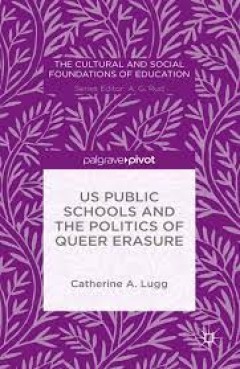
US Public Schools and the Politics of Queer Erasure
This book presents a history of queer erasure in the US public school system, from the 1920s up until today. By focusing on specific events as well as the context in which they occurred, Lugg presents a way forward in improving school policies for both queer youth and queer adults.
- Edition
- -
- ISBN/ISSN
- 978-1-137-53526-9
- Collation
- -
- Series Title
- -
- Call Number
- -

The Educational Significance of Human and Non-Human Animal Interactions
The Educational Significance of Human and Non-Human Animal Interactions explores human animal/non-human animal interactions from different disciplinary perspectives, from education policy to philosophy of education and ecopedagogy. The authors refute the idea of anthropocentrism (the belief that human beings are the central or most significant species on the planet) through an ethical investiga…
- Edition
- 1
- ISBN/ISSN
- 978-1-137-50525-5
- Collation
- XIII, 234
- Series Title
- -
- Call Number
- -
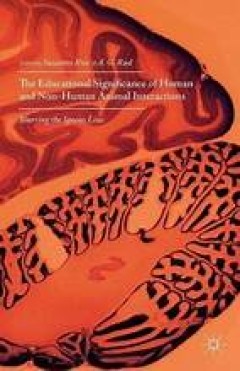
The Educational Significance of Human and Non-Human Animal Interactions
The Educational Significance of Human and Non-Human Animal Interactions explores human animal/non-human animal interactions from different disciplinary perspectives, from education policy to philosophy of education and ecopedagogy. The authors refute the idea of anthropocentrism (the belief that human beings are the central or most significant species on the planet) through an ethical investiga…
- Edition
- 1
- ISBN/ISSN
- 978-1-137-50525-5
- Collation
- XIII, 234
- Series Title
- -
- Call Number
- -
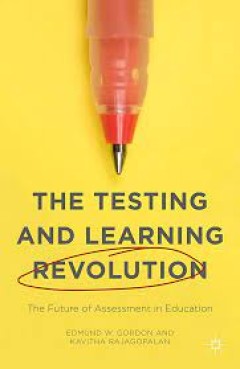
The Testing and Learning Revolution The Future of Assessment in Education
Gordon shows how we can use assessment to support teaching and develop students' competencies. Between 2011 and 2013, Gordon chaired an interdisciplinary commission of scholars and thinkers, who connected transformative research and ideas on learning, teaching, measurement, the nature of tests, intelligence, capability, technology, and policy.
- Edition
- -
- ISBN/ISSN
- 978-1-137-51996-2
- Collation
- -
- Series Title
- -
- Call Number
- -
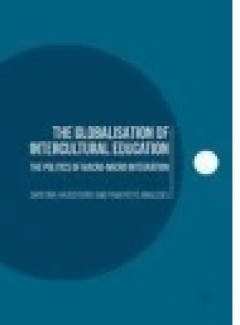
The Globalisation of Intercultural Education
This book examines the intersection of globalisation and intercultural education by focusing on the trajectory of education policy: from development to adoption and implementation.The centrality of the nation-state has been constrained by a wide range of new socio-cultural, political and economic phenomena over the past decade such as globalisation, Europeanisation, modernisation, and global re…
- Edition
- -
- ISBN/ISSN
- 978-1-137-52299-3
- Collation
- XI, 253
- Series Title
- -
- Call Number
- -
 Computer Science, Information & General Works
Computer Science, Information & General Works  Philosophy & Psychology
Philosophy & Psychology  Religion
Religion  Social Sciences
Social Sciences  Language
Language  Pure Science
Pure Science  Applied Sciences
Applied Sciences  Art & Recreation
Art & Recreation  Literature
Literature  History & Geography
History & Geography